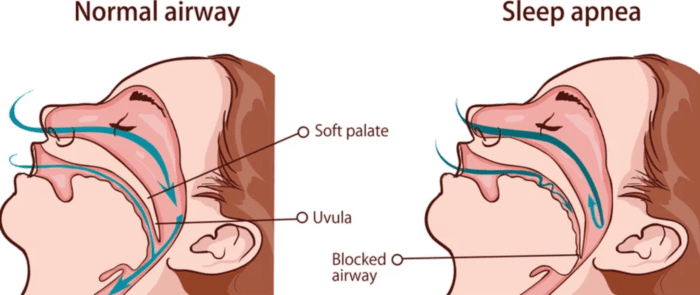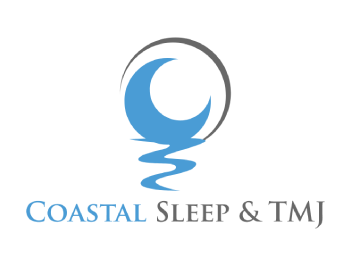Sleep apnea is a potentially dangerous sleep condition that affects your breathing. While you sleep, your breathing will stop and start continuously throughout the night. A common sign of sleep apnea is snoring, especially with obstructive sleep apnea. Other symptoms of sleep apnea include chronic headaches, difficulty staying awake or concentrating, and waking with a dry mouth.
Unfortunately, sleep apnea is much more severe than simply snoring. Without treatment, sleep apnea can cause many health problems. Sleep apnea can raise your blood pressure because your body is fighting to breathe. Over time, sleep apnea can damage your immune system. As a result, people with sleep apnea are more likely to have chronic health conditions. Additionally, there are strong correlations between sleep apnea and heart disease.

What is Obstructive Sleep Apnea (OSA)?
Obstructive sleep apnea (OSA) is the most common form of sleep apnea. Like all forms of sleep apnea, OSA causes you to stop breathing while you sleep. However, OSA is due to a blockage in the airway. The soft tissues in your throat, including the tongue and soft palate, create a blockage. As you sleep, your body relaxes, but with OSA, the relaxed tissues become a hazard.
One obvious sign of OSA is extremely loud snoring. While not all snoring is a symptom of sleep apnea, snoring is one of the leading indicators of the disorder. In addition, snoring associated with OSA is not light or gentle. In fact, many people report being able to hear OSA snoring from another room. This is because the soft tissues block oxygen from entering the airway. As you breathe, your body has to fight the obstruction, causing snoring or gasping for breath.
How Does Oral Appliance Therapy Work?
For many patients, a doctor recommends using a CPAP machine to alleviate sleep apnea symptoms. A CPAP machine delivers a steady stream of oxygen through a face mask. This will keep your airway open and provide you with enough oxygen to keep your blood oxygen levels at a safe range. CPAP machines are excellent for sleep apnea, but some patients don’t like the noise or bulk of the device. If you have mild to moderate OSA, you can talk to your dentist about an alternative: oral appliance therapy (OAT).
OAT is a device that you place in your mouth while you sleep. With OSA, the soft tissues in your mouth and throat create an obstruction that blocks your airway. Therefore, you need an appliance that can keep everything in place. This is what OAT does. A combination of soft plastics and metal pushes your tongue and soft tissues into their rightful place. Additionally, the oral device properly aligns your jaw to help keep your airway open.
If OAT suits you, your dentist will create a custom-fit device that will fit your mouth perfectly. Unlike a CPAP machine, oral appliance therapy doesn’t require electricity, making it a more convenient device.
